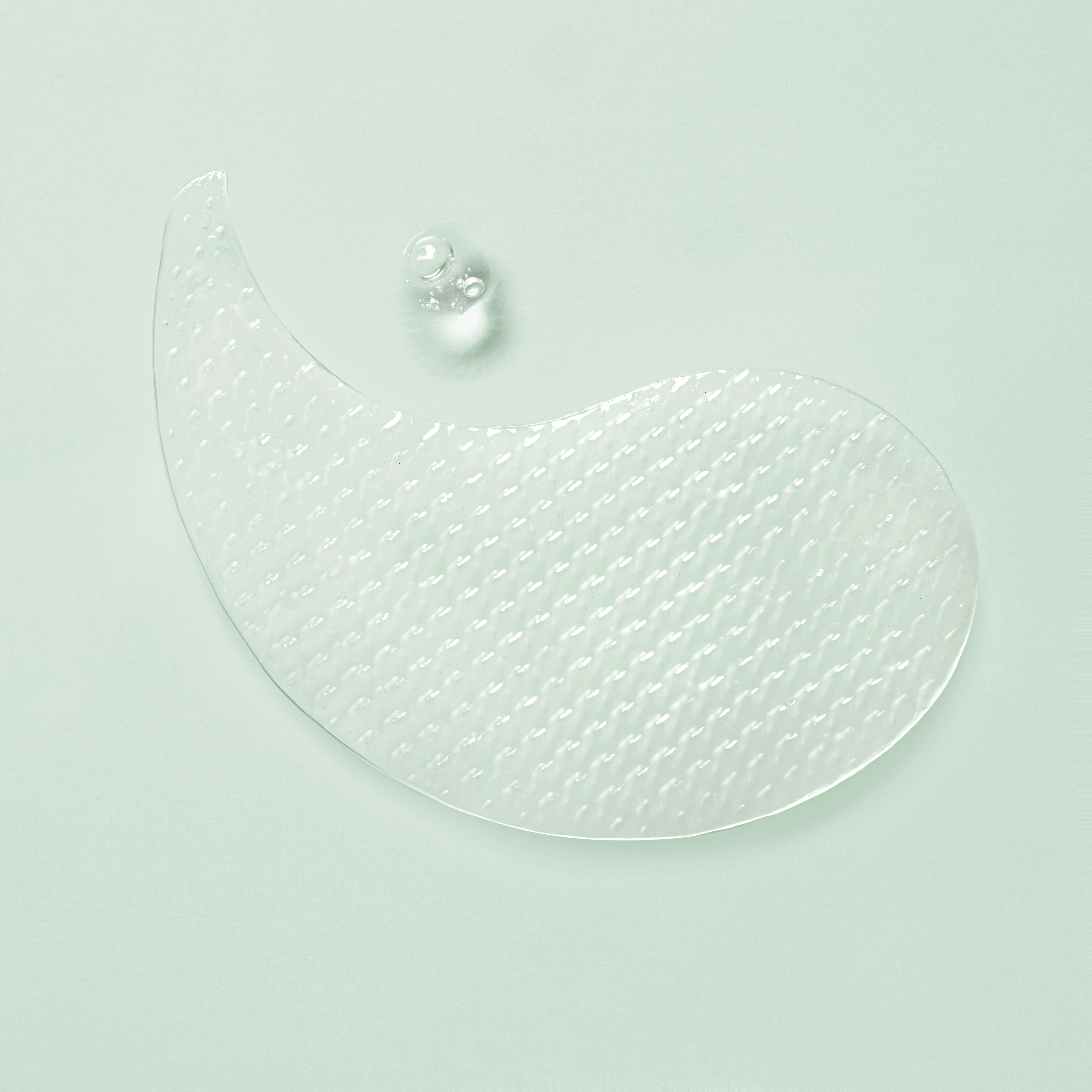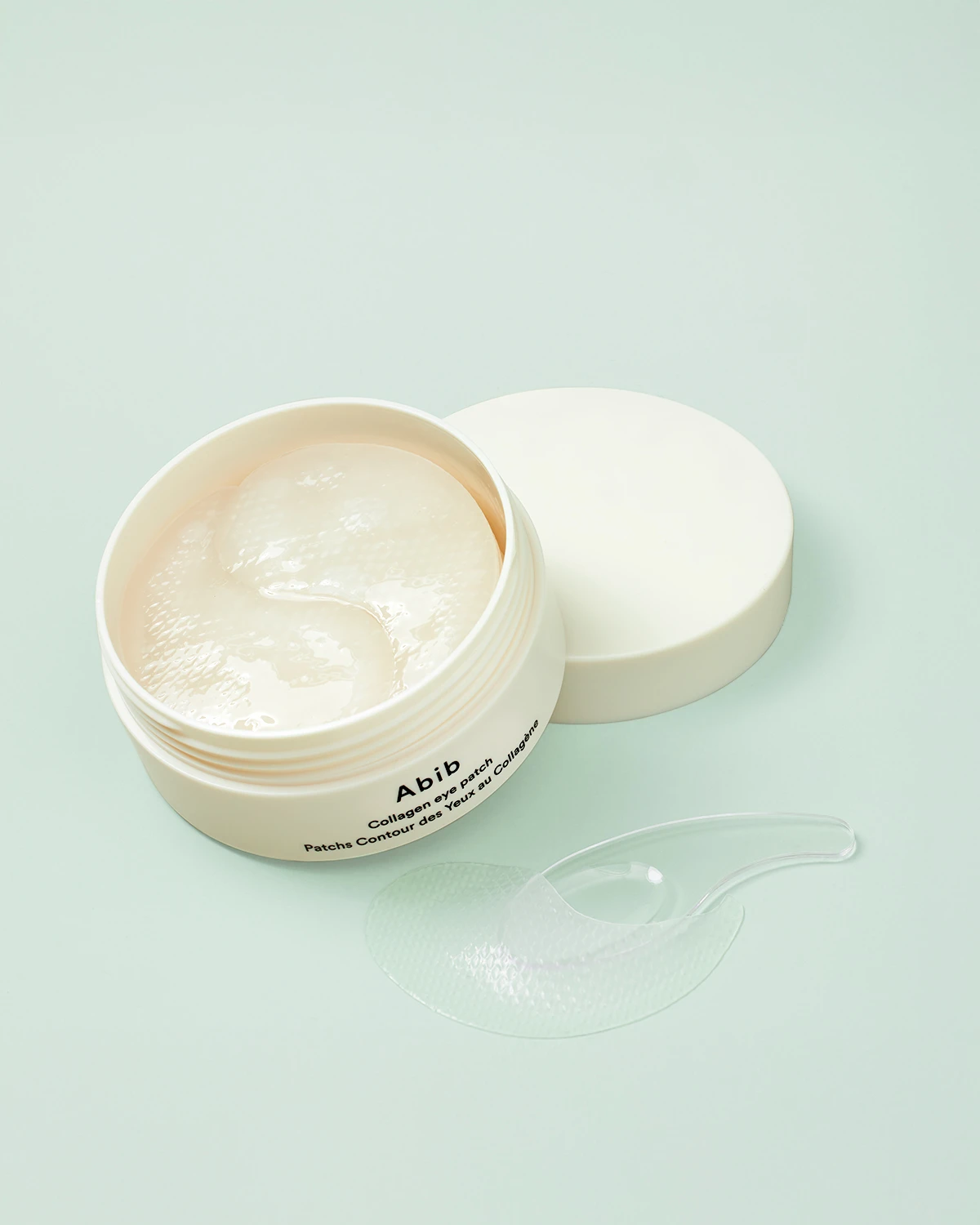The Brief:
When format is the differentiator but photography keeps failing
I chose Abib as a creative subject because they've cracked something most clean beauty brands ignore—making texture and format legible without drowning it in props or turning it into a chemistry lesson. As a Vancouver product photographer, I've watched hundreds of skincare launches fumble the basics: customers can't buy what they don't understand, and if your hydrogel patch looks like every other eye treatment in a jar, you've already lost the sale. Abib's collagen jelly patches presented a perfect brief to test whether photography alone could close that gap. This is a personal project, not a client commission, but it let me build a solution for the exact problem beauty brands face on e-commerce and direct-to-consumer sites—proving what's inside the package fast enough to catch attention.
The Challenge:
Making hydrogel texture self-evident across marketplace thumbnails and social feeds
If a brand like Abib needed to explain a complex product format across marketplace thumbnails and social feeds, here's how I'd approach it. The business challenge is straightforward: hydrogel patches submerged in vegan-collagen serum are a differentiator, but only if shoppers can see the translucency, serum density, and patch structure before they click away. Most photography either blows out the gel with harsh light or buries it in aspirational clutter. Neither drives conversion. The brief I set for myself was to make the format self-evident—show the patch, the liquid, the jar, and the texture in a way that reads premium but teaches instantly.
The Execution:
Soft lighting and controlled setups to reveal hydrogel materiality
I built the lighting around soft, controlled setups to manage specular highlights without killing depth. Hydrogels are tricky because they live between translucent and reflective, so I positioned the light to reveal edge definition and surface sheen without turning everything into glare. I focused on two core compositions: a single patch isolated to show curvature and micro-beads of serum, and an open jar with the full stack submerged in liquid. That pairing does the work—one frame proves texture, the other proves format and volume. Clean, neutral backgrounds kept the product as the only focal point. No props, no distractions, just immaculate set hygiene and precise reflection control so the materiality commands attention.
Launch-ready photo collection adaptable across channels without reshoots
The images work well for multiple placements without modification. The isolated patch functions as a macro texture study for paid social or editorial use, while the open-jar photo translates directly to e-commerce main images and product page secondary slots. Working from Vancouver, I shot with enough negative space to accommodate different formats, so a brand could pull photos for vertical social formats and retail portals from the same session. The collection includes serum-density closeups that reinforce the vegan-collagen story without making medical claims, and jar angles that communicate the sixty-piece count and premium packaging. This approach would serve a launch-ready photo collection—something a lean US marketing team could deploy across different channels without needing constant reshoots.
The Outcome:
Clean beauty photography that balances clinical credibility with visual appeal
What this demonstrates is that clean beauty product photography doesn't need to choose between clinical credibility and visual appeal. It needs clarity, consistency, and a camera operator who understands that gel texture product photos are conversion tools, not art projects. If you're a K-beauty or skincare brand trying to make format and formulation legible on e-commerce or direct-to-consumer sites, let's build a shoot plan that turns your product's material truth into your strongest sales asset.
<script type="application/ld+json">
{ "@context": "https://schema.org", "@type": "Service", "name": "Shadowless Lighting for Translucent Skincare Gels and Hydrogel Patches", "description": "Specialized photography service delivering glare-free, color-accurate pack shots and macro texture imagery for translucent skincare formulas using cross-polarization, backlighting, and neutral color management.", "serviceType": "Skincare Product Photography", "provider": { "@type": "Organization", "name": "Elina Kustlyvy Photography", "url": "https://www.elinakustlyvy.com" }, "areaServed": [ {"@type": "City", "name": "Vancouver", "addressRegion": "BC", "addressCountry": "CA"}, {"@type": "City", "name": "Toronto", "addressRegion": "ON", "addressCountry": "CA"}, {"@type": "City", "name": "Los Angeles", "addressRegion": "CA", "addressCountry": "US"}, {"@type": "City", "name": "Seattle", "addressRegion": "WA", "addressCountry": "US"} ], "url": "https://www.elinakustlyvy.com/projects/abib-us"
}
</script> <script type="application/ld+json">
{ "@context": "https://schema.org", "@type": "ImageObject", "contentUrl": "https://cdn.prod.website-files.com/653c048c7bdcdc4c8f4346aa/688e793b8c9e0f4c514f5ab5_686d68c01311802c23b8d296_abib-collagen-eye-patches1664-2.webp", "url": "https://cdn.prod.website-files.com/653c048c7bdcdc4c8f4346aa/688e793b8c9e0f4c514f5ab5_686d68c01311802c23b8d296_abib-collagen-eye-patches1664-2.webp", "name": "Abib Collagen Eye Patches translucent hydrogel with no-glare shadowless lighting", "caption": "Minimalist pack shot of Abib collagen eye patches showing translucent hydrogel texture and visible contents through cross-polarization and backlighting.", "creator": { "@type": "Person", "name": "Elina Kustlyvy", "url": "https://www.elinakustlyvy.com" }, "copyrightHolder": { "@type": "Organization", "name": "Elina Kustlyvy Photography" }, "acquireLicensePage": "https://www.elinakustlyvy.com/contact"
}
</script> <script type="application/ld+json">
{ "@context": "https://schema.org", "@type": "Brand", "name": "Abib", "description": "South Korean clean skincare brand founded in 2018, emphasizing minimally processed ingredients, vegan collagen, plant-derived PDRN, and skin's self-generating power under the mission to restore skin to its prime natural complexion.", "url": "https://en.abib.co.kr", "sameAs": [ "https://www.instagram.com/abib.official/", "https://en.wikipedia.org/wiki/Abib_(brand)" ]
}
</script> <script type="application/ld+json">
{ "@context": "https://schema.org", "@type": "Product", "name": "Abib Collagen Eye Patch Jericho Rose Jelly", "description": "Vegan hydrogel eye patch targeting under-eye wrinkles, dark circles, and puffiness with fermented yeast collagen, Jericho Rose extract, niacinamide, caffeine, and ceramides.", "brand": { "@type": "Brand", "name": "Abib" }, "category": "Skincare Eye Treatment", "review": { "@type": "Review", "author": { "@type": "Person", "name": "Elina Kustlyvy" }, "reviewRating": { "@type": "Rating", "ratingValue": "5", "bestRating": "5" }, "reviewBody": "The translucent hydrogel texture and glossy packaging required precision cross-polarization and backlighting to eliminate glare while preserving visible collagen solution and micro-texture. Minimalist neutral backgrounds maintained the brand's clean aesthetic and allowed accurate color representation for retailer-ready PDP imagery." }
}
</script> <script type="application/ld+json">
{ "@context": "https://schema.org", "@type": "BreadcrumbList", "itemListElement": [ { "@type": "ListItem", "position": 1, "name": "Projects", "item": "https://www.elinakustlyvy.com/projects" }, { "@type": "ListItem", "position": 2, "name": "Skincare Photography", "item": "https://www.elinakustlyvy.com/projects/category/skincare-photography" }, { "@type": "ListItem", "position": 3, "name": "Abib US Case Study", "item": "https://www.elinakustlyvy.com/projects/abib-us" } ]
}
</script> <script type="application/ld+json">
{ "@context": "https://schema.org", "@type": "WebPage", "name": "Skincare e-commerce photographer for minimalist packshots: Abib case study", "description": "Portfolio case study demonstrating shadowless lighting, cross-polarization, and macro texture techniques for translucent K-Beauty hydrogel patches and clean skincare products with visible contents and no-glare clarity.", "url": "https://www.elinakustlyvy.com/projects/abib-us", "speakable": { "@type": "SpeakableSpecification", "cssSelector": [".article-intro", ".article-conclusion"] }, "about": [ {"@type": "Thing", "name": "Skincare e-commerce photography"}, {"@type": "Thing", "name": "Translucent hydrogel product photography"}, {"@type": "Thing", "name": "No-glare lighting for clear packaging"} ], "mentions": [ { "@type": "Brand", "name": "Abib", "sameAs": "https://en.abib.co.kr" }, { "@type": "Thing", "name": "Collagen Eye Patch Jericho Rose Jelly" } ]
}
</script> <script type="application/ld+json">
{ "@context": "https://schema.org", "@type": "HowTo", "name": "How to photograph translucent skincare gels without glare for minimalist pack shots", "description": "Three-step lighting and composition approach to capture color-accurate, visible-contents imagery of hydrogel patches and clear skincare formulas for ecommerce and retailer listings.", "step": [ { "@type": "HowToStep", "position": 1, "name": "Apply cross-polarization and backlighting", "text": "Use cross-polarized light sources and lens polarizers to eliminate surface glare on glossy packaging and translucent gels. Add controlled backlighting to define edges and reveal internal texture of hydrogel patches without color cast, preserving the clean aesthetic required for ingredient-focused brands." }, { "@type": "HowToStep", "position": 2, "name": "Compose open-pack visible-contents shots on neutral backgrounds", "text": "Position products centrally with packaging opened to expose contents—collagen solution, hydrogel patches—against neutral gray or pastel backgrounds. This composition communicates ingredient transparency and purity while meeting minimalist design language and retailer technical specifications." }, { "@type": "HowToStep", "position": 3, "name": "Capture macro texture with focus stacking for detail without glare", "text": "Shoot macro crops using focus stacking to render micro-texture of gels, serums, and patch materials with full depth clarity. Maintain shadowless lighting and negative fill control to prevent specular highlights, delivering stop-scroll social assets and PDP detail shots that visually communicate efficacy." } ]
}
</script> <script type="application/ld+json">
{ "@context": "https://schema.org", "@type": "FAQPage", "mainEntity": [ { "@type": "Question", "name": "How do you photograph translucent gel eye patches without glare for clean beauty brands?", "acceptedAnswer": { "@type": "Answer", "text": "Cross-polarization eliminates surface reflections on glossy packaging and translucent hydrogel materials, while controlled backlighting defines edges and reveals internal texture without color cast. Neutral backgrounds and shadowless setups preserve the minimalist aesthetic and ingredient transparency central to clean beauty positioning, delivering color-accurate pack shots suitable for PDP and retailer listings." } }, { "@type": "Question", "name": "What lighting approach improves product detail page conversion for K-Beauty skincare with visible contents?", "acceptedAnswer": { "@type": "Answer", "text": "Open-pack compositions on neutral grounds with shadowless lighting and macro texture detail allow customers to see actual formulas—collagen solution, gel viscosity, patch materials—building trust and reducing uncertainty. This visible-contents approach communicates ingredient efficacy visually, supports retailer compliance, and aligns with millennial and Gen Z expectations for transparency, directly addressing the clarity gaps that drive bounce rates." } }, { "@type": "Question", "name": "How can skincare brands visually communicate ingredient transparency without heavy claims in product photography?", "acceptedAnswer": { "@type": "Answer", "text": "Visible-contents pack shots showing opened products with clear views of gels, serums, and patch materials let the formula speak for itself, while macro texture crops render micro-details like viscosity and surface finish that signal formulation quality. Neutral color management and no-glare techniques ensure accuracy, allowing brands to demonstrate purity and efficacy through visual evidence rather than claims-heavy copy, satisfying regulatory constraints and consumer skepticism." } } ]
}
</script>

- other recent projects
Byoma hydrating serum photography showing dropper mechanics and micro-bubble texture clarity
Rhode skincare photography highlighting texture and gloss with directional lighting
OUAI detox shampoo photography with water splash and product detail
Kibon Beauty sheet mask photography for e-commerce and social media campaigns
Everlucid serum photography using practical gradient lighting techniques
Dfinite foundation swatch photography comparing lighter and deeper shade formulas side by side






